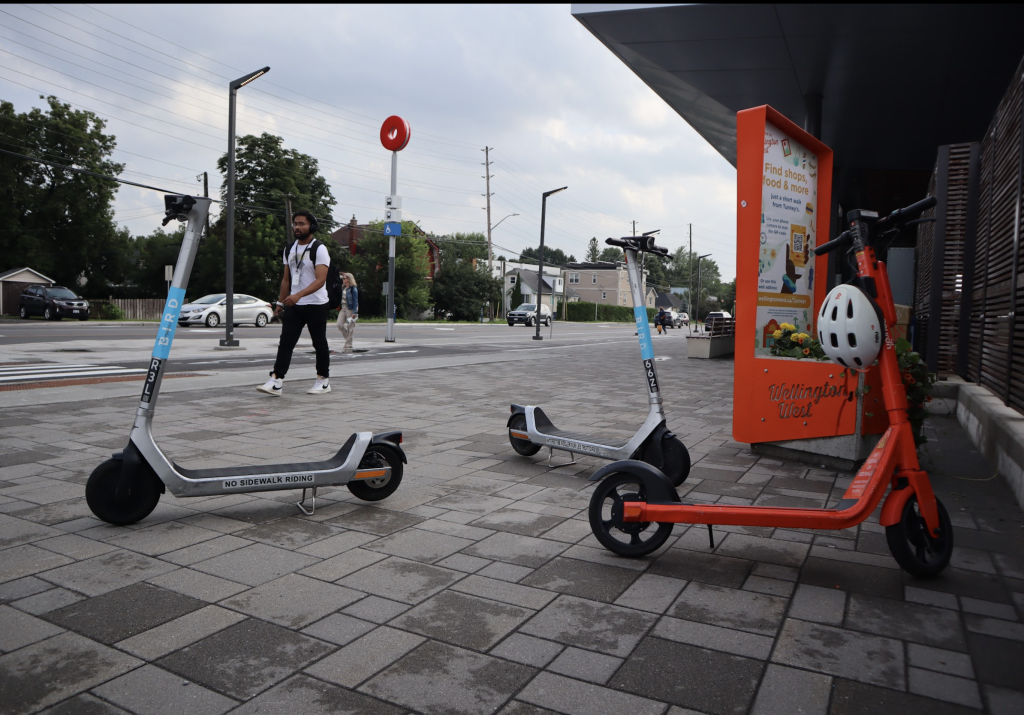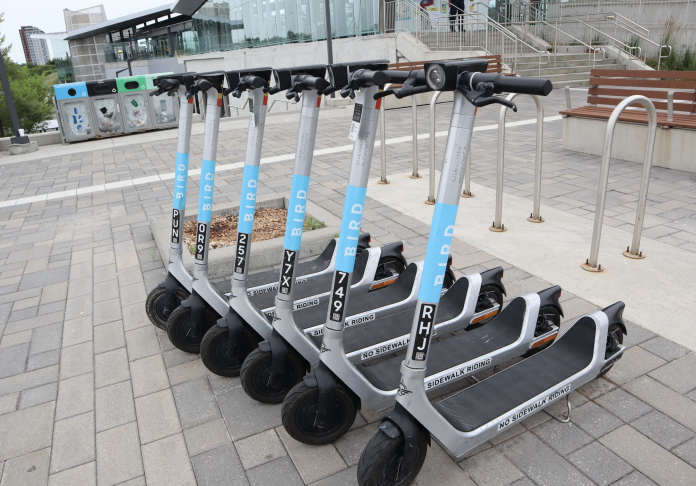By Simon Hopkins
Ottawa’s electric scooters arrived in 2020.
The battery-powered scooters zip around the city, maxing out at 20 kilometers per hour. These publicly available vehicles are part of a five-year program in Ontario which allows cities to hire the scooter service providers. The experiences of the cities will inform the province’s decision as to whether these types of sharable vehicles will be permitted on Ontario roads.
Some view the scooters as an alternative to city bikes. The e-scooters sit parked on sidewalks around the city, unable to move because of their self-locking wheels and extreme weight. Users activate the vehicles using the service provider’s app. Once activated, the scooter becomes usable with a throttle on the handlebar. Riders are charged at a per-minute rate.
The first year of the program in Ottawa was rocky. Scooter use became notoriously reckless, posing a danger to pedestrians and drivers. Parked and tipped-over scooters littered the streets, but since then, the city has refined the regulations of the scooters.
Companies must now use GPS to prevent scooters from running on sidewalks. They also emit a beeping noise to alert pedestrians of their presence. Initially, the scooters were confined to a small area downtown, but their area of operation has since expanded.
This year, two service providers have made scooters available throughout Kitchissippi. Company trucks pick up scooters at night to recharge their batteries, leaving charged scooters in rows at intersections across the city.
As Ottawa continues to review the merits of the e-scooters, we asked folks in Kitchissippi for their thoughts:
Elena Dawit: “I don’t use them; my kids use them. They leave their car [at home] so it’s less traffic – as long as they’re paying attention – and it’s good for the environment.”
Brian K. Stewart: “They’re problematic when they’re driven irresponsibly. I think they should follow the traffic laws. The GPS [stopping the scooter on sidewalks] is a good trick.”
Cassey: “I think they should be regulated in some way. Young people shouldn’t be allowed [to use them], but people with mobility difficulties should be allowed.”
David: “Enough people use them to justify keeping them around, but stay off the sidewalks and respect traffic.”
Andreas: “They’re a good idea. They give freedom to move from point A to point B. They should keep them around, but the city needs to give more companies the opportunity to compete for the service.”

